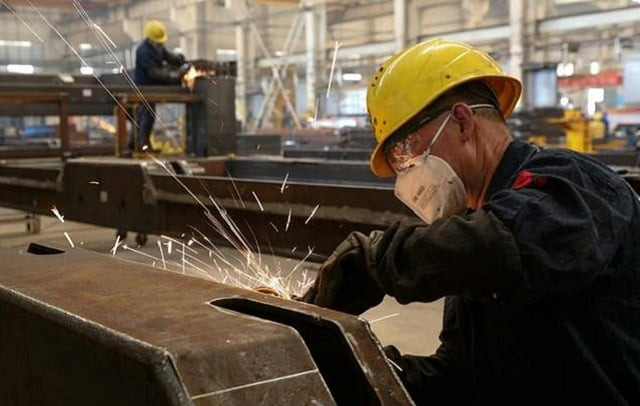China mulls new foreign investment law: state media
US and EU officials complain of a lack of fair access for foreign companies in China

The proposal comes as China's economy slows and a bruising trade war with the US stymies growth. PHOTO: AFP
The new "unified law" will replace three existing laws on Chinese and foreign equity joint ventures, non-equity joint ventures and wholly foreign-owned enterprises, the official Xinhua news agency reported.
A draft of the proposed legislation was presented at a meeting of the Standing Committee of the National People's Congress (NPC) which began Sunday.
When in place, the new law would bar local governments from restricting market access for foreign firms and from forcing them to transfer technology.
This will ensure foreign investors would enjoy the same privileges as Chinese companies in most sectors except those excluded on a "negative list".
US and EU officials have long complained of a lack of fair access for foreign companies in China, as well as rampant theft of intellectual property.
FO to host two-day conference to attract foreign investment
"In order to further expand opening up, actively promote foreign investment, protect the legitimate rights and interests of foreign investment, and promote the formation of a new pattern of comprehensive opening, the State Council has proposed a bill," the Standing Committee said is a statement about the meeting posted on the NPC website.
The moves signal China's increased support for the economy as a bruising trade war with the US has stymied growth.
Top policymakers on Friday pledged support with tax cuts and other policy measures including further opening the economy and better protection of intellectual property rights.
China’s BRI brings great opportunities for Pakistan: former PM
Economic data has shown China's economy slowing this autumn, with Chinese consumer spending growing at its slowest pace in 15 years during November and factories easing up on production.
Chinese President Xi Jinping and US President Donald Trump agreed to a 90-day tariff truce this month, as the two sides try to find a more permanent solution to the trade dispute.
Senior officials from both countries had a phone conversation on Friday and "made new progress" on several issues including trade balance and strengthening intellectual property protection, China's commerce ministry said in a statement Sunday.
The meetings of the Standing Committee of the National People's Congress, a powerful body of lawmakers headed by top legislator Li Zhanshu, run until Saturday.



















COMMENTS
Comments are moderated and generally will be posted if they are on-topic and not abusive.
For more information, please see our Comments FAQ